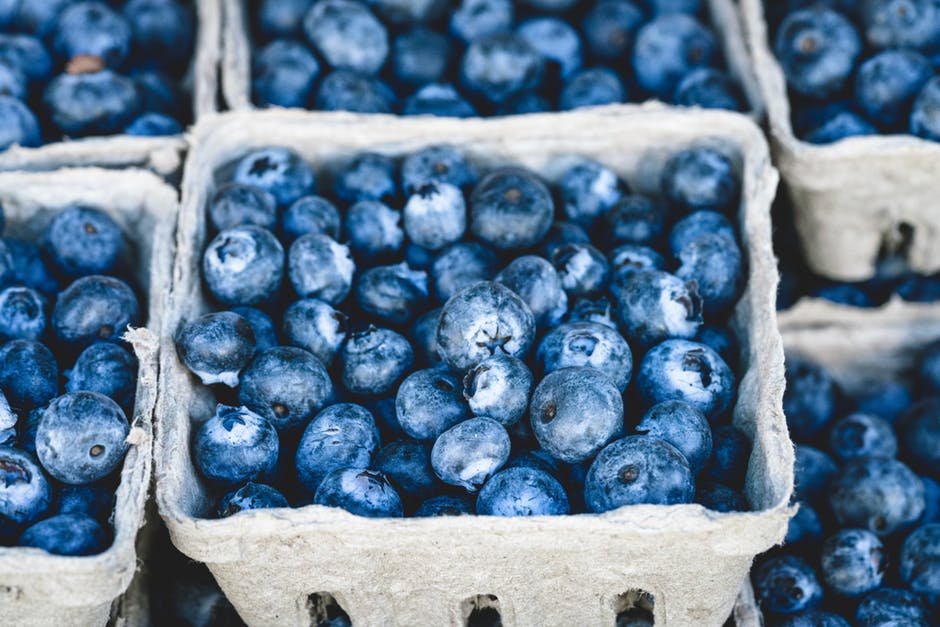Craving Blueberries: Aren’t They a Superfood?
Category: Healthy Living
There’s something special about biting into a freshly baked blueberry muffin or popping a sweet, ripe blueberry into your mouth on a warm summer afternoon.
These dark purplish-blue berries are satisfying, sweet, and fantastically healthy. If you’ve been craving blueberries, you’ll be glad to know that they’re one of the most beneficial fruits you can choose to enjoy.
Not only do blueberries taste great, but they’re also full of antioxidants and helpful nutrients. The next time that you’re looking for RX coupons, take a moment to add blueberries to your shopping list.
Are Blueberries a Superfood?
Blueberries contain a variety of crucial nutrients and chemicals, making them a tasty and beneficial superfood. These antioxidant-rich berries contain essential vitamins and minerals, including Vitamin C.
Blueberries are also an excellent source of potassium and an insignificant source of calories. This makes them a worthwhile option for those attempting to maintain or lose weight.
However, boosted immunity and weight loss aren’t the only benefits of eating blueberries. But understanding the differences between the two major types of blueberries is imperative.
Wild Blueberry Benefits
There are several benefits associated with blueberries. They’re full of antioxidants, fiber, vitamins, and minerals. However, not all blueberries are alike. Most domestic species of blueberries fall into one of two categories.
- Highbush Blueberry. These blueberry plants can grow up to eight feet in height. They render juicy fruit that is slightly less flavorful and sweet than the lowbush’s fruit.
- Lowbush Blueberry. These only grow to two or three feet in height, but they produce dark, small berries that are often loaded with antioxidants and flavor.
Lowbush blueberries tend to thrive in warmer climates that experience very few frost days throughout the year. Highbush blueberry plants flourish in colder regions, and they typically produce far more berries than their southern counterparts.
Still, no matter which type of blueberry you decide to snack on, it’s bound to taste great and provide your body with much-needed nutrients. Some of the benefits of eating blueberries (of any type) include:
- Increased Antioxidant Levels
- Reduced Damage to DNA
- Lowered “Bad” Cholesterol
- Lowered Blood Pressure
- Improve Brain Function
If you’re looking for a tasty superfood to snack on, you may want to consider blueberries. Still, it’s vital to know precisely what blueberries contain and how beneficial they can be for you and your diet.
If you’re taking or ordering medications, be sure to check that blueberries don’t interact with your medicines. Consulting with a physician or health care provider could help you make a decision.
Wild Blueberries: Nutrition and Calories
Lowbush blueberries are sometimes referred to as “wild” blueberries. If you’re interested in reaping the most potent benefits from blueberries (and enjoying a more vibrant, stronger taste), you’ll want to invest in wild blueberries.
A cup of blueberries contains about:
- 84 calories
- 3.6g of fiber
- 1g of protein
- 144mg of potassium
Blueberries also contain Vitamin C, Vitamin A, calcium, and iron. Because they’re such a complex and nutrient-rich fruit, they’re often lauded as being a superfood. This leaves many wondering just how many blueberries they can eat each day.
How Many Blueberries Should I Eat Each Day?
While there isn’t a lot of information regarding how many blueberries a person should eat each day, you can still calculate an optimal amount of blueberries per day. The key to this process is considering the macro- and micronutrients in blueberries.
Using standardized nutritional information, you can decide on a healthy amount of blueberries per day. For example, the U.S. Department of Health & Human Services recommends that adults consume between 75mg and 90mg of Vitamin C each day.
A single cup of blueberries contains about 14.4mg of Vitamin C. This is well below the recommended daily amount, which may encourage you to consume more blueberries. At 84 calories per cup, there’s little reason not to imbibe on blueberries.
Blueberries are great for smoothies, pies, cakes, and day-to-day snacking. The possibilities are endless when it comes to blueberry recipes. Still, it is crucial to note that blueberries are high in natural sugars.
The average American adult should only consume between 25g and 38g of sugar per day. A cup of blueberries contains bout 15g of sugar, which accounts for half or more of a person’s recommended daily allowance.
Can You Eat Too Many Blueberries?
As with all things in life, it is possible to overindulge. Our bodies are complex biological machines that require hundreds of various vitamins and nutrients to survive, function, and flourish. Too much or too little of anything can be harmful.
While you aren’t likely to overdose on blueberries, you could cause your stomach to stretch by consuming too many blueberries in a short amount of time. You could also eat way too much sugar, forcing your body to release a massive amount of insulin.
Over time, this constant sugar intake could lead to issues related to insulin resistance, hypoglycemia, and diabetes. Even though blueberries are a tasty and relatively healthy treat, they shouldn’t be the only thing you eat throughout the day or week.
Are You Craving Blueberries?
Have you been craving blueberries and their sweet, dark wholesomeness? Don’t wait to treat yourself to one of the tastiest superfoods in existence, be sure to stop by your local farmer’s market or supermarket and enjoy some fresh blueberries today!
If you’ve enjoyed this information about blueberries, you’ll likely enjoy our related articles. Be sure to contact us today and keep learning about health and nutrition!




